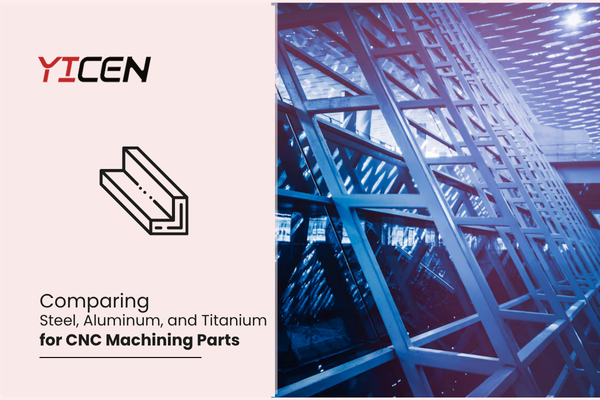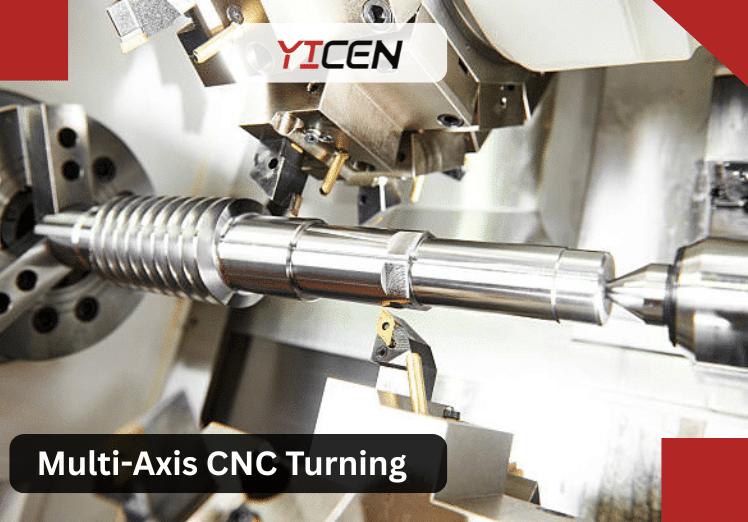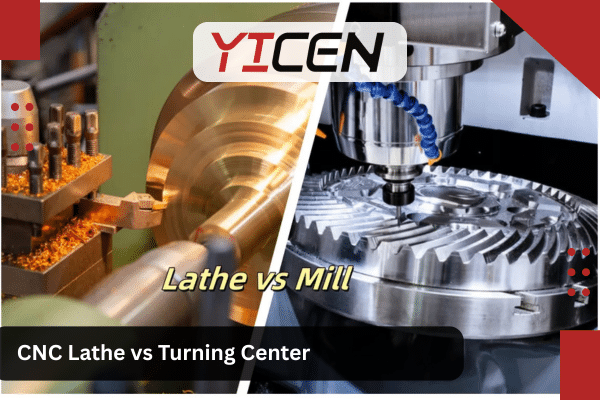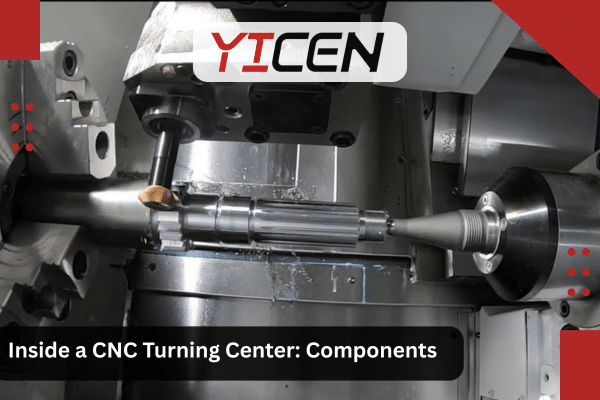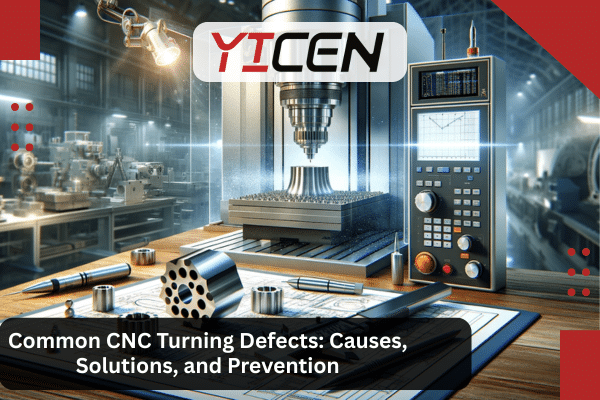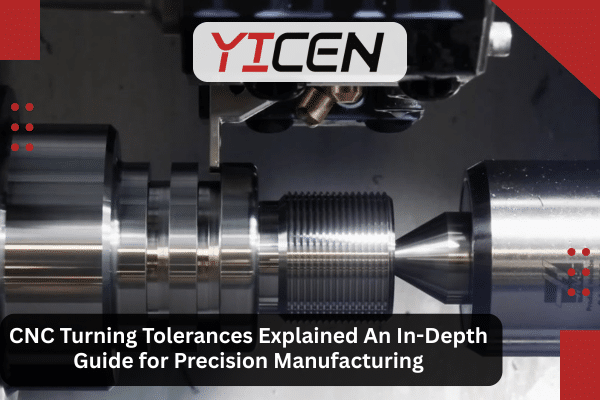Choosing the right material is the first strategic step when you need CNC machining parts that perform reliably and stay within budget. Each metal—steel, aluminum, or titanium—offers a different mix of strength‑to‑weight ratio, corrosion resistance, and processing cost. For businesses in China that rely on Yicen Precision for high‑mix, low‑volume production, understanding these trade‑offs prevents costly redesigns and accelerates time‑to‑market.
Material Choice Matters for CNC Machining Parts
A precision CNC Machining Parts component’s success hinges on two fundamentals: can it handle the loads, and can you make it repeatably? The metal you select influences:
- Dimensional stability under heat and vibration
- Surface finish achievable through CNC machining services
- Cycle time and tool wear in precision CNC machining operations
- Long‑term maintenance costs of the end product
A robotics start‑up in Suzhou once tried titanium for an indoor servo bracket. After a pilot run, Yicen Precision suggested high‑strength aluminum instead. Weight savings were minimal, but machining time dropped 40 % and unit cost halved—proof that material choice is often the most powerful lever in custom manufacturing.
Quick Comparison of Steel, Aluminum, and Titanium
Here’s a quick comparison of metals like steel, aluminum, and titanium:
| Attribute | Carbon/304 Stainless Steel | 6061‑T6 Aluminum | Grade 5 Titanium (Ti‑6Al‑4V) |
| Density (kg/m³) | 7 800 | 2 700 | 4 420 |
| Ultimate tensile strength (MPa) | 570 (304) | 310 (6061‑T6) | 1 000 (Ti‑6Al‑4V) |
| Thermal conductivity (W/m·K) | ~16 (304) NIST Publications | 170 | 6.7 |
| Typical use | Gears, shafts, molds | Housings, jigs, fixtures | Aerospace, medical implants |
Steel in Metal CNC Machining
Mechanical Muscle
Steel remains the go‑to option when parts must survive high loads, abrasion, or elevated temperatures. Austenitic 304 stainless offers excellent corrosion resistance; medium‑carbon grades provide higher hardness for wear components.
Machinability and Finish
Modern carbide tooling lets a seasoned CNC machining parts cut mild steel at 180 m/min, but stainless may need feeds 40 % slower to avoid work‑hardening. Coolant flow and rigid fixturing are critical in CNC metal machining to prevent chatter and thermal distortion.
Cost and Supply Chain
Steel is abundant in China, and bulk bar or plate prices track global scrap indices, making it the cheapest option per kilogram. However, slower feeds mean longer spindle hours compared with aluminum.
Aluminum for Custom CNC Machining
Lightweight and Versatile
6061‑T6 combines a 310 MPa tensile strength with one‑third the weight of steel, yielding an unbeatable strength‑to‑mass ratio for drones, robots, and consumer electronics.
Speed Advantage
Aluminum chips quickly, so end mills can run at 6 – 8× the surface speed of steel. That velocity slashes cycle times in precision CNC machining, letting CNC machining parts quote shorter lead times and better unit pricing.
Surface Treatments
Type II anodizing adds a decorative oxide layer; Type III (hardcoat) improves wear resistance. Both finish options integrate seamlessly into high‑mix projects without delaying production schedules at Yicen Precision.
Titanium in Precision CNC Machining
High Strength, Low Mass
Grade 5 titanium delivers up to 1000 MPa tensile strength—roughly three times stronger than 6061‑T6 for only 60 % more weight. That property makes it indispensable for aerospace fasteners and surgical tools.
Tough on Tools
Titanium’s poor thermal conductivity traps heat at the cutting edge. Successful CNC machining parts requires high-pressure coolant, sharp micro-grain carbide, and effective chip evacuation. Yicen Precision uses adaptive toolpaths that keep radial engagement low, extending insert life despite the alloy’s reputation for “gummy” cutting behavior.
Cost Reality
Raw billet prices can exceed aluminum by a factor of seven. Projects must justify life‑cycle payback—lower fuel burn in aircraft or unmatched biocompatibility in implants—before committing to titanium.
Perspective Before the Decision
Because every project faces its own blend of load, weight, and budget constraints, no single metal wins outright. The decision matrix below distills the critical factors Yicen Precision engineers examine during design for manufacturability (DFM) reviews, helping clients reduce risk and pick the optimal alloy the first time.
| Factor | Steel | Aluminum | Titanium |
| Strength‑to‑weight | Moderate | Good | Excellent |
| Corrosion resistance | Stainless good | Needs anodize | Very high |
| Thermal expansion | Low | Medium‑high | Low |
| Cutting speed (relative) | 1× | 6× | 0.4× |
| Ideal industries | Mold tooling, gears | Fixtures, frames | Aerospace, medical |
Sustainability and Lifecycle Impact of CNC Metals
Global buyers increasingly ask suppliers to quantify the environmental footprint of their CNC machining parts. Material choice drives that footprint more than any single machining parameter, so Yicen Precision evaluates each alloy through a sustainability lens before production begins.
- Steel is the world’s most recycled material. Roughly 680 million tonnes of scrap were melted back into new steel in 2021, preventing more than one billion tonnes of CO₂ emissions; every tonne of scrap saves another 1.5 tonnes of CO₂ and 740 kg of coal.
- Aluminum wins the energy‑savings race. Making billet from recycled chips uses only 5 % of the energy required to smelt primary aluminum, slashing both cost and carbon. US EPA
- Titanium recycling is still emerging. Specialized processes are needed to avoid oxygen pickup; aerospace programs such as NASA’s Orbital Alchemy initiative are piloting methods to reclaim titanium hardware in space and on Earth.
Integrating Material Choice with CNC Machining Services
- Simulate loads early. Finite‑element analysis on draft CAD can show whether switching from steel to aluminum meets stiffness targets.
- Ask your CNC machining manufacturer about stock availability. In‑house bar sizes reduce scrap and cost.
- Plan secondary operations. Heat treating steel or anodizing aluminum adds lead time; flag these steps when requesting custom CNC machining quotes.
- Verify tolerances. Titanium’s spring‑back may require extra finishing passes in CNC machining parts to hit ±0.01 mm.
Real‑World Case Study
A Shenzhen EV maker needed 5000 motor‑mount brackets. Initial specs called for steel. Yicen Precision proposed 7075‑T6 aluminum after a structural review showed stresses below 200 MPa. The switch cut weight by 2.1 kg per vehicle and saved ¥ 1.3 million in annual energy costs for the fleet, demonstrating how thoughtful CNC metal machining decisions ripple through an entire product life cycle.
Conclusion
Selecting the best alloy for your CNC machining parts is both an art and a science. Steel offers unbeatable strength per yuan, aluminum maximizes speed and weight savings, and titanium excels when performance trumps price. Yicen Precision combines decades of custom CNC machining know‑how with rigorous DFM support to guide Chinese and global innovators toward the most cost‑effective, high‑performance solution every time.
Frequently Asked Questions
Q: Which metal delivers the tightest tolerances?
With the right fixturing, all three can hold ±0.01 mm in precision CNC machining. Titanium may need extra spring‑back compensation.
Q: Is titanium ever economical for consumer products?
Yes. High‑visibility parts like luxury watch cases justify the material premium, especially when surface treatments are minimal.
Q: How do I calculate machining cost differences?
Multiply tool‑path time (in minutes) by your shop’s hourly rate. Aluminum’s high cutting speed often offsets its higher scrap volume.

